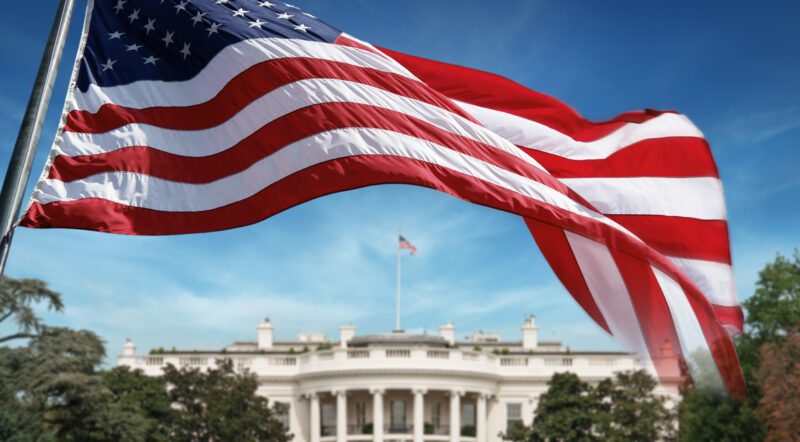
In April, President Joe Biden opened his new Made in America Office in an effort to ensure the government is purchasing domestically-produced goods. The office would “use our taxpayer dollars to spur investment that promotes growth and resilient supply chains,” Biden said at the time.
Recently, that office issued new waiver guidance that aims to reduce exceptions to Made-in-America laws. The guidance aims to maximize the use of taxpayer dollars on domestic products and services while strengthening the industrial base.
“As the pandemic has demonstrated, federal procurement can strengthen the resiliency of domestic supply chains,” according to a White House statement.
Right now, products can qualify as “American” if just 55% of the value of their component parts was manufactured here. The new rule proposes an immediate increase of the threshold to 60% and a phased increase to 75%. The White House says this would close a problematic loophole, while also allowing businesses time to adjust their supply chains to increase the use of American-made components.
The proposed change also strengthens domestic supply chains for critical goods with new price preferences.
Enhanced price preferences would be applied to select critical products and components identified by the critical supply chain review and the pandemic supply chain strategy. These preferences would support the development and expansion of domestic supply chains for critical products.
Government contractors have responded positively to the proposed changes.

“Booz Allen Hamilton supports the Administration’s focus on Buy American and looks forward to how we can continue to lean forward and help implement the new rules once finalized,” said Julia Donley, vice president at Booz Allen Hamilton. “Given Booz Allen’s long history of successful relationships with small businesses, we will be in an excellent position to support these efforts.”
She noted, however, the timing associated with implementation will be critical for success.
“For instance, how quickly we increase the percentage of products purchased with taxpayer dollars that are ‘substantially all’ made in the U.S. will need to be carefully considered, in order for the demand to be met,” she said, noting contractors don’t want to create undue pressure on an already taxed supply chain.
Others say to build resiliency into the supply chain, this initiative should unfold as part of a broader effort to strengthen the defense industrial base, or DIB.
“The Buy American guidance is directly linked to the challenges faced by the DIB and the federal supply chain overall. All of these challenges need to be addressed in parallel,” said Pat Tamburrino Jr., vice president of LMI’s logistics practice.
The challenges of the pandemic highlight a critical need to bolster the DIB and related supplies chain in the U.S. and among the nation’s allies, he said, starting with microelectronics.

“Implementing Buy American policies will be more feasible if we address the deficiencies in our industrial base and create a robust set of suppliers for critical federal programs, most notably those managed by the Department of Defense,” Tamburrino said.
The proposed changes also aim to increase transparency and accountability. Currently, contractors only tell the government if they meet the content threshold, rather than reporting the total domestic content in their products.
The new rules would establish a reporting requirement for critical products.
“More complete and accurate data would be used to target future improvements to support America’s entrepreneurs, farmers, ranchers, and workers — and along the way, create good jobs and resilient communities,” the White House reports.
The contracting community can help to drive forward the Buy American effort, but it will require some introspection and thoughtful planning.
“Ultimately, the GovCon community can best support the president’s goals by understanding our own supply chains, their associated risks and challenges,” Donley said. GovCons can move to seek out alternate resources, “and, where there may be opportunity, to strengthen them by leveraging what is available domestically.”

